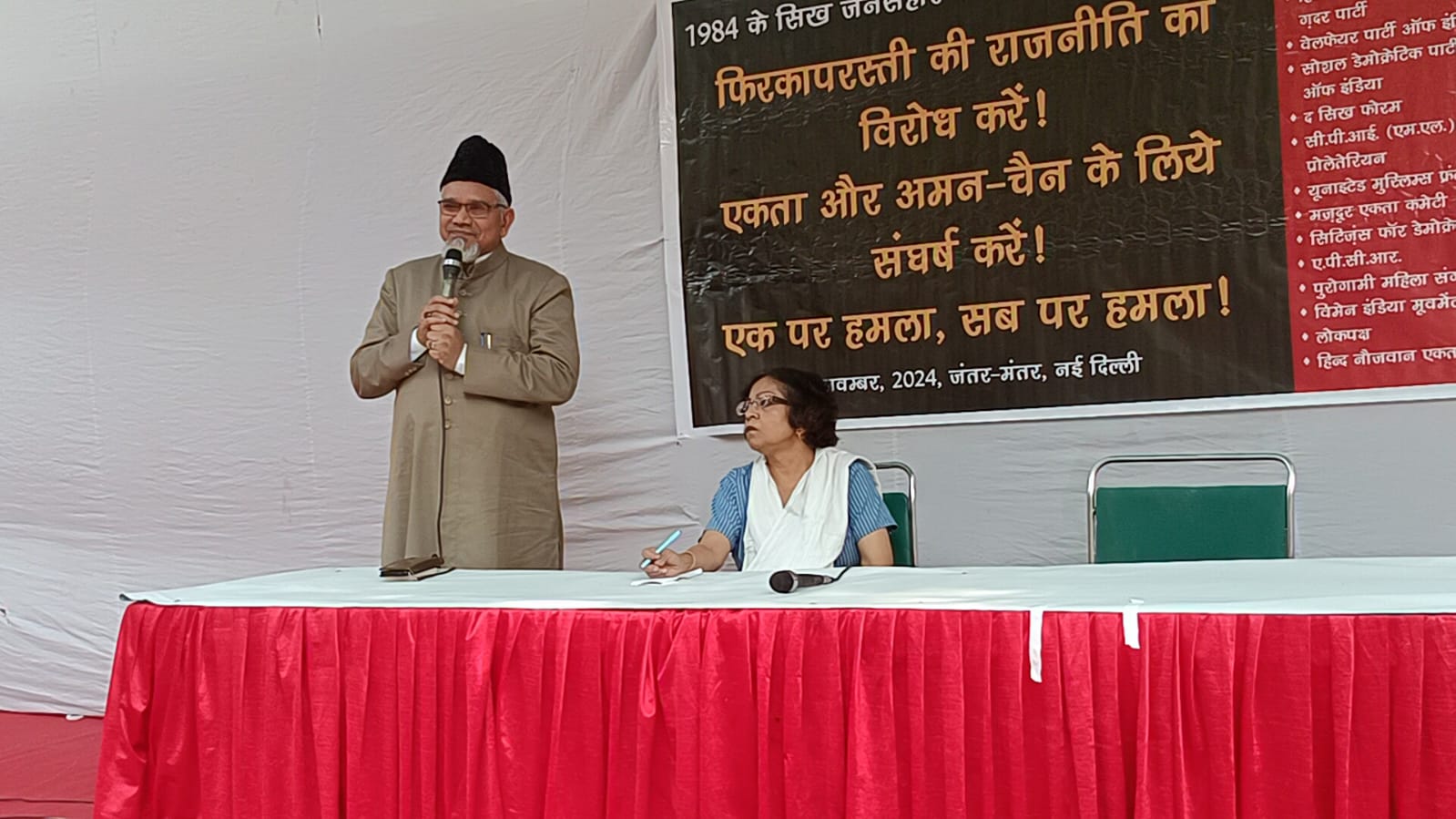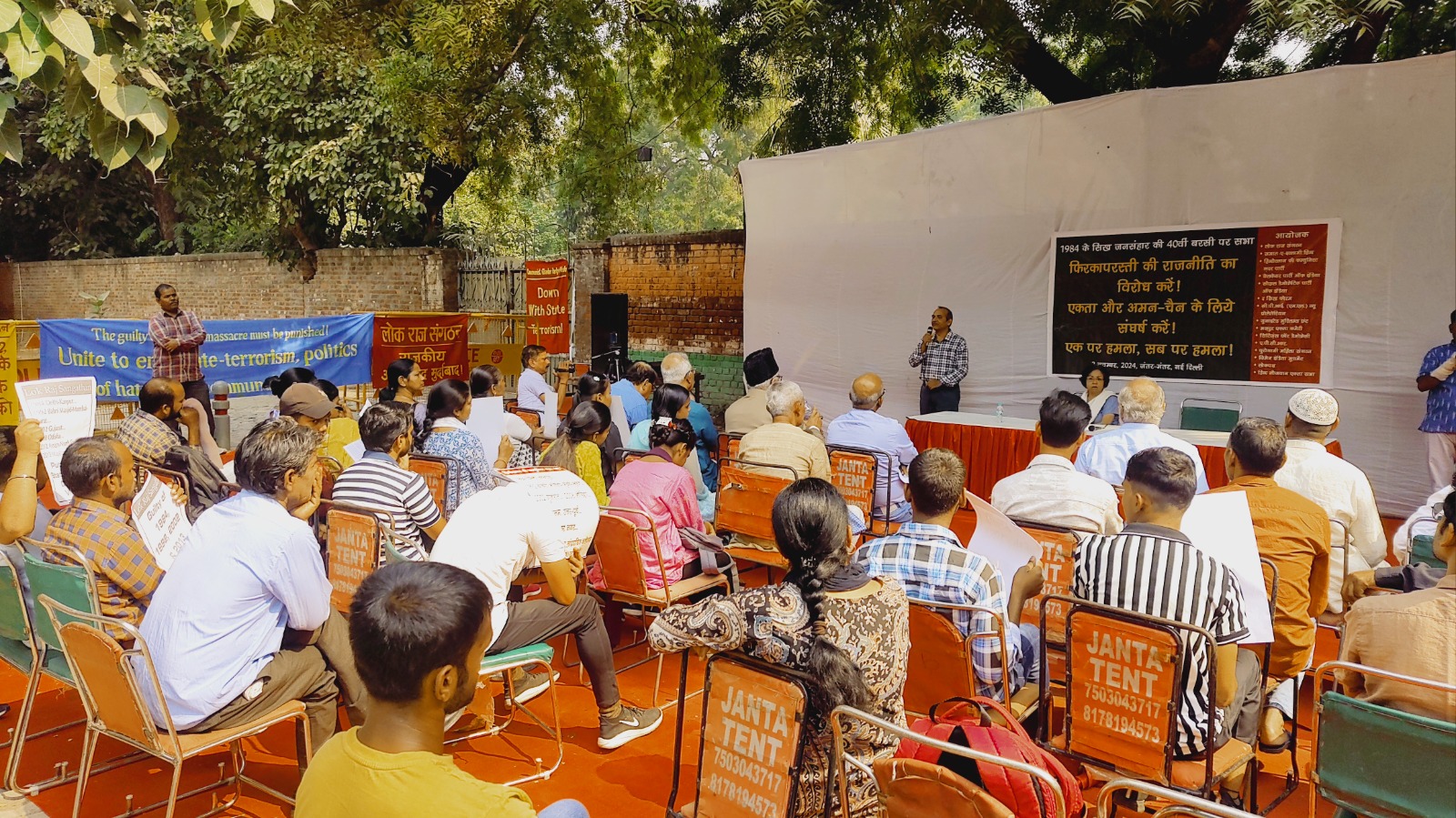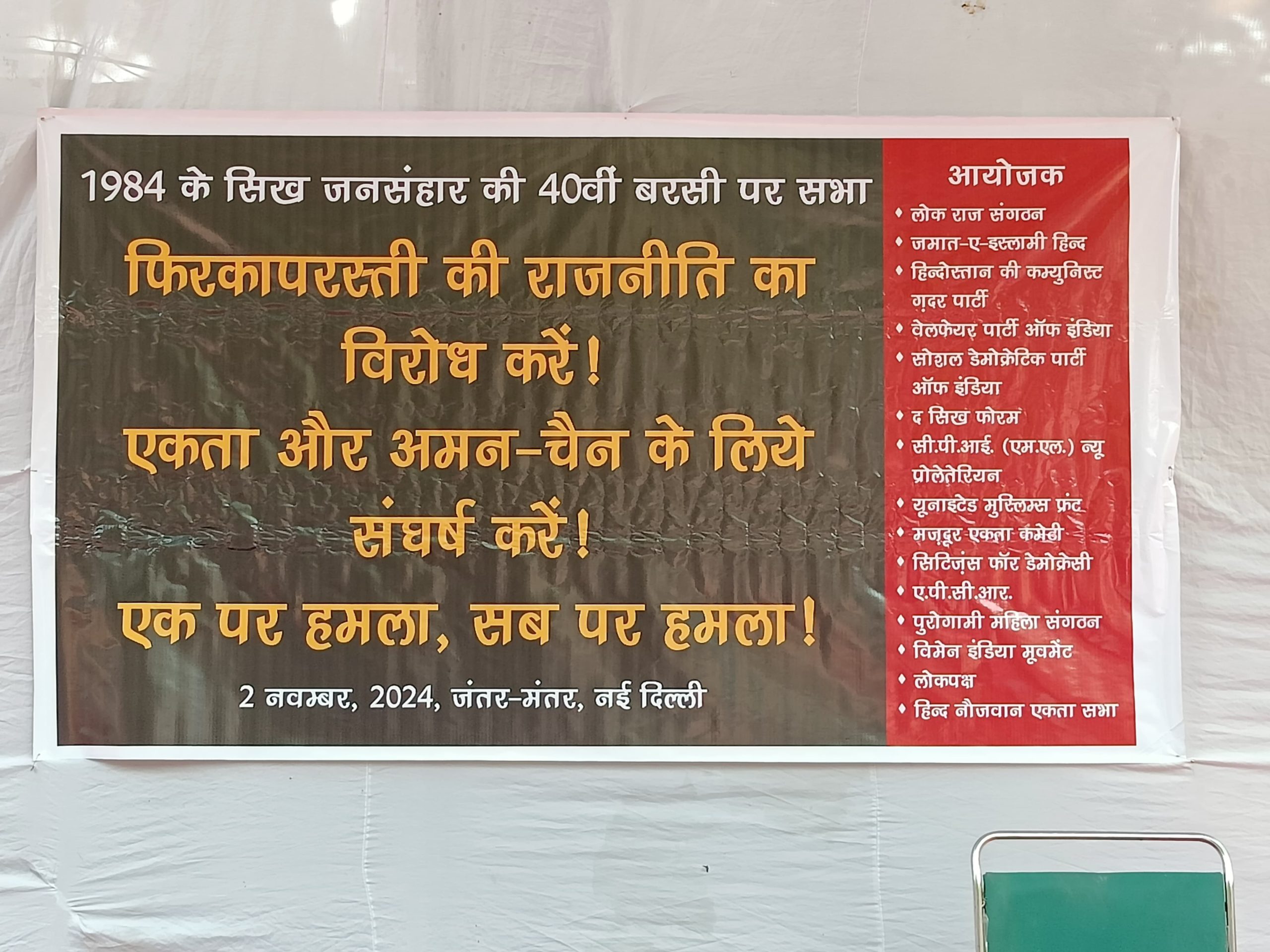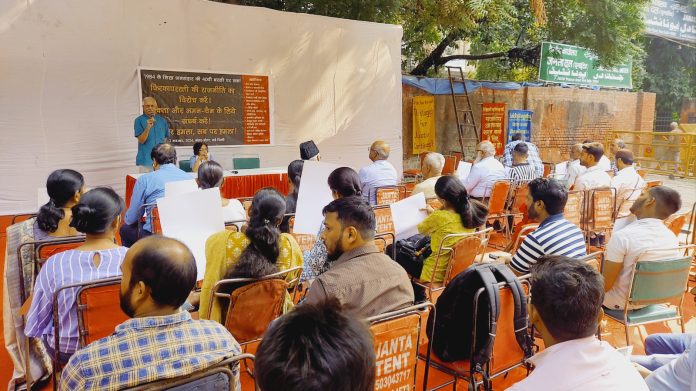Muslim community is the new target of the current ruling establishment: participants
– Abdul Bari Masoud
New Delhi: A public gathering was held at Jantar Mantar here today to mark the 40th anniversary of the 1984 Sikh genocide, which claimed over 5,000 lives. The participants demanded official recognition of the genocide’s organised nature and accountability for the state’s failure to deliver justice to the victims. The genocide, which occurred in Delhi and other areas between October 31 and November 3, followed the assassination of Prime Minister Indira Gandhi by her Sikh bodyguards.
 Attendees carried placards with slogans such as, “Down with State-organised Communal Violence and State Terror!” and “Punish those guilty of organising the Sikh genocide!” Other slogans called for accountability for communal violence in 1992, 2002, and 2022, and emphasised unity with the message, “An Attack on One is an Attack on All.”
Attendees carried placards with slogans such as, “Down with State-organised Communal Violence and State Terror!” and “Punish those guilty of organising the Sikh genocide!” Other slogans called for accountability for communal violence in 1992, 2002, and 2022, and emphasised unity with the message, “An Attack on One is an Attack on All.”
Speakers from various organisations asserted that the attack on the Sikh community was orchestrated by top leaders of the Congress, the ruling party at that time, with high-level support. They stated it was planned well in advance, leaving a lasting impact on millions. Despite multiple inquiry commissions revealing failures in command responsibility, no meaningful action has been taken across successive governments over the decades.
 They also highlighted ongoing communal violence and the targeting of both Muslim and Sikh communities. While the Sikh community was targeted in the 1980s, they argued, Muslims are now increasingly vulnerable. Speakers cited increased religious discrimination, restrictions on religious institutions, and rising incidents of violence like lynchings. They also noted that anti-Muslim narratives are intensifying, especially in the lead-up to elections.
They also highlighted ongoing communal violence and the targeting of both Muslim and Sikh communities. While the Sikh community was targeted in the 1980s, they argued, Muslims are now increasingly vulnerable. Speakers cited increased religious discrimination, restrictions on religious institutions, and rising incidents of violence like lynchings. They also noted that anti-Muslim narratives are intensifying, especially in the lead-up to elections.
The speakers pointed to the discourse around madrasas and the Waqf Bill as examples of policies that make Muslim communities and their institutions vulnerable to prejudice and marginalisation.
 They argued that these systematic efforts to target communities along religious lines are meant to prevent unity against socio-economic issues like inflation, unemployment, and poverty. By fostering divisions, those in power keep communities from joining forces to demand rights and justice.
They argued that these systematic efforts to target communities along religious lines are meant to prevent unity against socio-economic issues like inflation, unemployment, and poverty. By fostering divisions, those in power keep communities from joining forces to demand rights and justice.
Participants called for an end to state-organised communal violence and emphasised the need for accountability to protect citizens from such atrocities. They demanded mechanisms to uphold command responsibility and ensure those in power face consequences for enabling communal attacks.
Reflecting on the four decades since 1984, they expressed frustration over unaddressed reports from various commissions and investigative bodies. They highlighted that justice remains elusive, and while some individuals have faced punishment, the primary perpetrators continue to evade accountability. The Sikh genocide, they said, involved mass killings, rapes, and widespread looting, yet it is still not fully recognised as organised, systemic violence.
The gathering underscored that the ruling establishment’s claims of enforcing the “rule of law” ring hollow, as they themselves use communal divisions and vote banks to entrench a “divide and rule” strategy, weakening society and depriving citizens of their right to a secure, dignified life.
The event was organized by Lok Raj Sangathan, Jamaat-e-Islami Hind, Communist Ghadar Party of India, Welfare Party of India, Social Democratic Party of India, The Sikh Forum, LokPaksh, Mazdoor Ekta Committee, Purogami Mahila Sangathan, Hind Naujawan Ekta Sabha, Citizens for Democracy, Student Islamic Organisation, CPIML (New Proletarian), APCR, and others.
Among those addressing the meeting were S. Raghavan from Lok Raj Sangathan, Mohammed Salim Engineer from Jamaat-e-Islami Hind, Ravindar from LokPaksh, Birju Nayak from the Communist Ghadar Party of India, artist Aparna Caur, Hashim Malik from SDPI, and Siddhant from IFTU Sarvahara.




